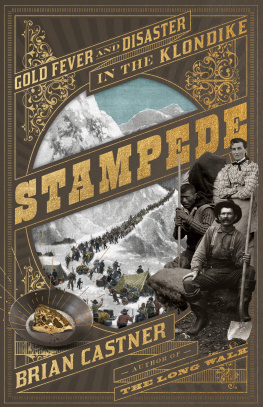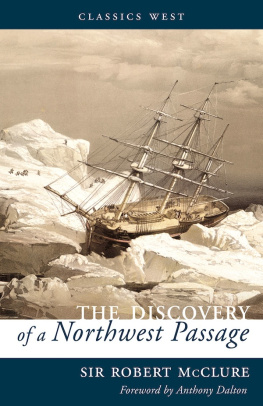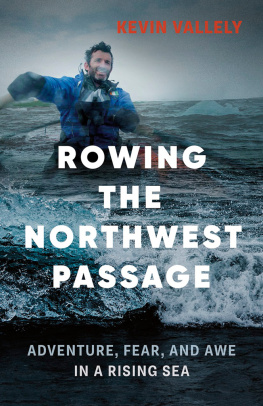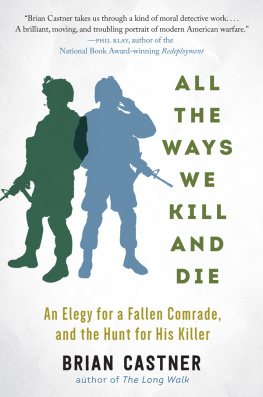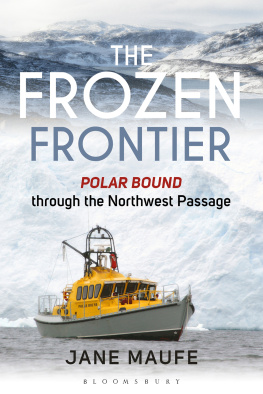Brian Castner - Disappointment River: Finding and Losing the Northwest Passage
Here you can read online Brian Castner - Disappointment River: Finding and Losing the Northwest Passage full text of the book (entire story) in english for free. Download pdf and epub, get meaning, cover and reviews about this ebook. year: 2018, publisher: Knopf Doubleday Publishing Group, genre: History. Description of the work, (preface) as well as reviews are available. Best literature library LitArk.com created for fans of good reading and offers a wide selection of genres:
Romance novel
Science fiction
Adventure
Detective
Science
History
Home and family
Prose
Art
Politics
Computer
Non-fiction
Religion
Business
Children
Humor
Choose a favorite category and find really read worthwhile books. Enjoy immersion in the world of imagination, feel the emotions of the characters or learn something new for yourself, make an fascinating discovery.

- Book:Disappointment River: Finding and Losing the Northwest Passage
- Author:
- Publisher:Knopf Doubleday Publishing Group
- Genre:
- Year:2018
- Rating:3 / 5
- Favourites:Add to favourites
- Your mark:
- 60
- 1
- 2
- 3
- 4
- 5
Disappointment River: Finding and Losing the Northwest Passage: summary, description and annotation
We offer to read an annotation, description, summary or preface (depends on what the author of the book "Disappointment River: Finding and Losing the Northwest Passage" wrote himself). If you haven't found the necessary information about the book — write in the comments, we will try to find it.
Disappointment River: Finding and Losing the Northwest Passage — read online for free the complete book (whole text) full work
Below is the text of the book, divided by pages. System saving the place of the last page read, allows you to conveniently read the book "Disappointment River: Finding and Losing the Northwest Passage" online for free, without having to search again every time where you left off. Put a bookmark, and you can go to the page where you finished reading at any time.
Font size:
Interval:
Bookmark:
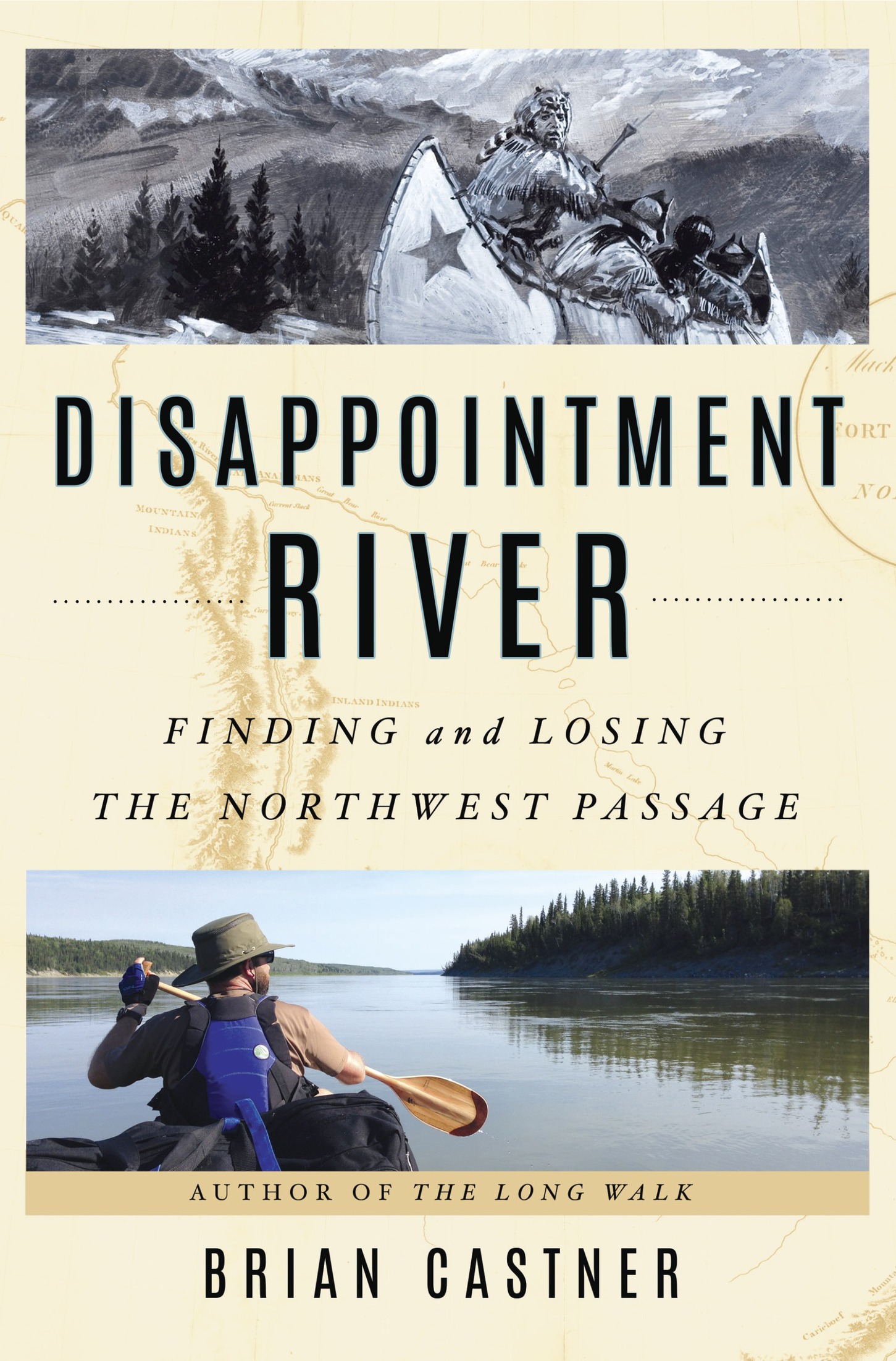
All the Ways We Kill and Die
The Long Walk
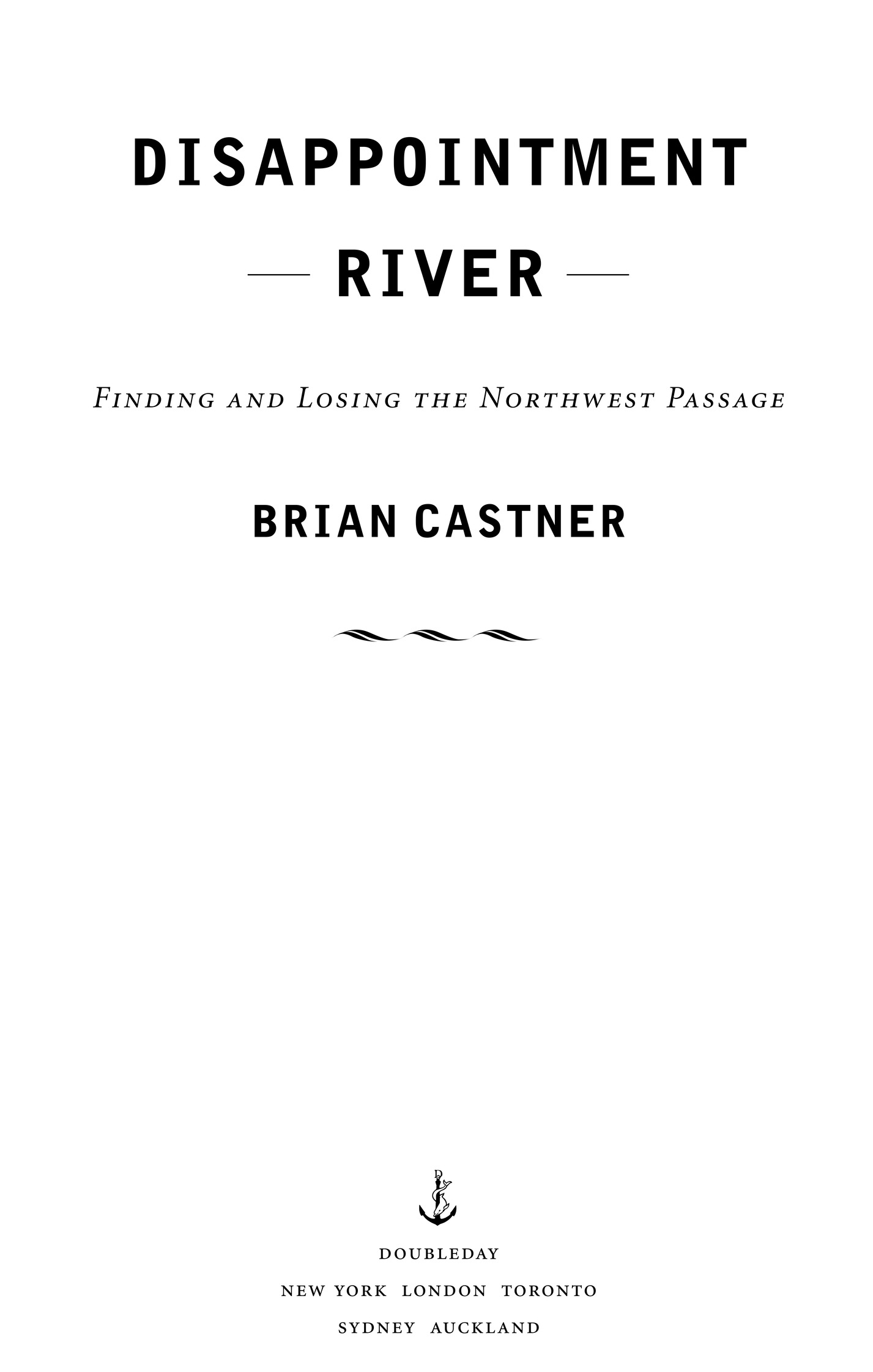
Copyright 2018 by Brian Castner
All rights reserved. Published in the United States by Doubleday, a division of Penguin Random House LLC, New York.
www.doubleday.com
DOUBLEDAY and the portrayal of an anchor with a dolphin are registered trademarks of Penguin Random House LLC.
Portions of this work first appeared, in different form, in the following publications:
The Atlantic: A Disappearing Home in a Warming World (10/12/16)
Motherboard: The Best Place in the World to Set a Forest Fire (9/14/16); I Canoed to the Arctic Ocean, and What Did I Find? A Balmy Beach (9/16/16); The People Making Solar Power Where the Sun Doesnt Set (9/15/16); Silt Built This TownAnd Melting Ice Will Eventually Destroy It (9/13/16); Why I Canoed 1,200 Miles to the Arctic Circle to Report on Climate Change (9/12/16); and The $20 Billion Arctic Pipeline That Will Haunt Forever (10/9/16).
Supplemental travel support provided by the Pulitzer Center on Crisis Reporting.
Map by Jeffrey L. Ward
Cover design by Emily Mahon
Cover images: (top) Alexander Mackenzie by Graham Coton (detail) Look and Learn / Bridgeman Images; (bottom) by David Chrisinger; (background) Map of Mackenzies route to North Sea, 1789 . Library of Congress, Map Collection.
LIBRARY OF CONGRESS CATALOGING-IN-PUBLICATION DATA
Names: Castner, Brian, author.
Title: Disappointment River : finding and losing the Northwest Passage / by Brian Castner.
Description: First edition. | New York : Doubleday, [2018]
Identifiers: LCCN 2017033495 | ISBN 9780385541626 (hardcover) | ISBN 9780385541633 (ebook)
Subjects: LCSH : Mackenzie, Alexander, 17641820. | Mackenzie River (N.W.T.)Description and travel. | Northwest PassageDiscovery and exploration. | Northwest PassageDescription and travel.
Classification: LCC G 650 1789 . C 37 2018 | DDC 971.9/01092 [ B ] DC 23 LC record available at https://lccn.loc.gov/2017033495
Ebook ISBN9780385541633
v5.2
ep
For David, Jeremy, Landon, and Senny
I went to Alaska once, you know. I toured the Alaska-Canada road they built there during the war. Fantastic. Not the road, the landscape. The mighty road was just this insignificant little scratch across that landscape. Youve never seen a world like that. It belongs to the God who was God before the BibleGod before he woke up and saw himselfGod who was his own nightmare. There is no forgiveness there. You make one tiny mistake and that landscape grinds you into a bloody smudge, and I do mean right now, sir.
Denis Johnson, Tree of Smoke

A significant portion of this book concerns the actions of people indigenous to lands now known as North America. The proper names for these peoplenot to mention their lands and the rivers that run through themare still a matter of controversy. Preferred titles and spellings have changed over time, generally toward greater cultural sensitivity, but in the written historical record precision is complicated by the paucity of primary indigenous voices; white men almost exclusively do the speaking and use a variety of names and terms now considered offensive.
Today, in the United States, the original inhabitants of the continent are collectively known as Native Americans or American Indians. In Canada, they are the First Nations. The only name consistently used for hundreds of years, and even (perhaps surprisingly) throughout current academic literature today, is still the simple Indian. In my travels, I found that term used quite often, especially by Indians themselves. So in this book, I will also use Indian when quoting or speaking of the history generally. When writing about the modern day, however, Ill use the term indigenous when a generic word is called for, because it has grown in popular acceptance over the last few decades, aboriginal and native now trending out of favor.
As often as possible, however, I will use the specific name of the indigenous group, using the historical name when appropriate for the setting. Today we know them as the Inuit and Dene, but when speaking of the eighteenth century, as Alexander Mackenzie knew them, I will write Esquimaux, Dogrib, Slavey, Hare, depending on the nation.
In this balance of accuracy and courtesy, any errors are mine alone.

The river was liquid glass, a cloud mirror that rolled beneath my canoe and made me dizzy, as if I might stumble and fall down into the heavens, and in the horizon the silvery sky and water fused as one.
We had been paddling for two days, and the river was so wide that the far bank appeared to be little more than a slight film of green. Reeds filled our shore, black ducks and seagulls and a steady succession of bald eagles feeding on both. Behind us, tumbling lake storms, and ahead, just a rumor of current.
This river. The many nations of Dene, the indigenous peoples in the upper and middle basin, know it as the Deh Cho. The Gwichya Gwichin, of the lower interior bush, as the Nagwichoonjik. The Inuvialuit, the western Inuit at the rivers end in the Arctic, as the Kuukpak. All the names are a variation on the same themethe Big Riverand for good reason. It is the second longest in North America. The island that plugs the rivers upper mouth is larger than five Manhattans. Everything about the Deh Cho is enormous.
And yet I intended to canoe every drop of it, all eleven hundred miles. I am a fairly serious river guide, but never before had I undertaken a self-supported trip of this magnitude, and the scale of the journey weighed heavily. We paddled an eighteen-and-a-half-foot Sea Clipper canoe, wide and steady as the days, designed to track through whitecaps and swallow hundreds of pounds of gear. I had spent half a year researching, purchasing, testing, sorting, packing, and repacking that gear: an Everest-rated tent, solar panels and satellite link, a handcrafted curved splitting ax from Maine, ninety freeze-dried dinners from Quebec, plus apples, mandarins, bagels, peanut butter, chocolate, oatmeal, tea, chunk honey, and fifteen pounds of pemmican. All that and more, stuffed in waterproof barrels or lashed to the boat so a rogue wave couldnt end our trip.
That morning, as we broke our first camp on the sandy shore of Great Slave Lake , I felt smothered. By the scale of the job ahead of us, the labor required, the intense summer heat, the size of the river. It had taken two days of travel just to reach the starting line, weeks and weeks yet to go to find the end.
All day, the shore ground by reluctantly. Grueling progress in the hazy shimmer. But then, unexpectedly and with great relief, a breeze stirred behind ushow did a breeze come out of the east?and the watery mirror shattered as wavelets formed about us.
I unfolded the small sail we had brought for just such an unlikely development, clipped it to a metal bar at the nose of the boat, and when a gust caught us I felt it tug hard against my line and we surged forward, surfing on and over the rising waves, making real headway for the first time.
Font size:
Interval:
Bookmark:
Similar books «Disappointment River: Finding and Losing the Northwest Passage»
Look at similar books to Disappointment River: Finding and Losing the Northwest Passage. We have selected literature similar in name and meaning in the hope of providing readers with more options to find new, interesting, not yet read works.
Discussion, reviews of the book Disappointment River: Finding and Losing the Northwest Passage and just readers' own opinions. Leave your comments, write what you think about the work, its meaning or the main characters. Specify what exactly you liked and what you didn't like, and why you think so.


